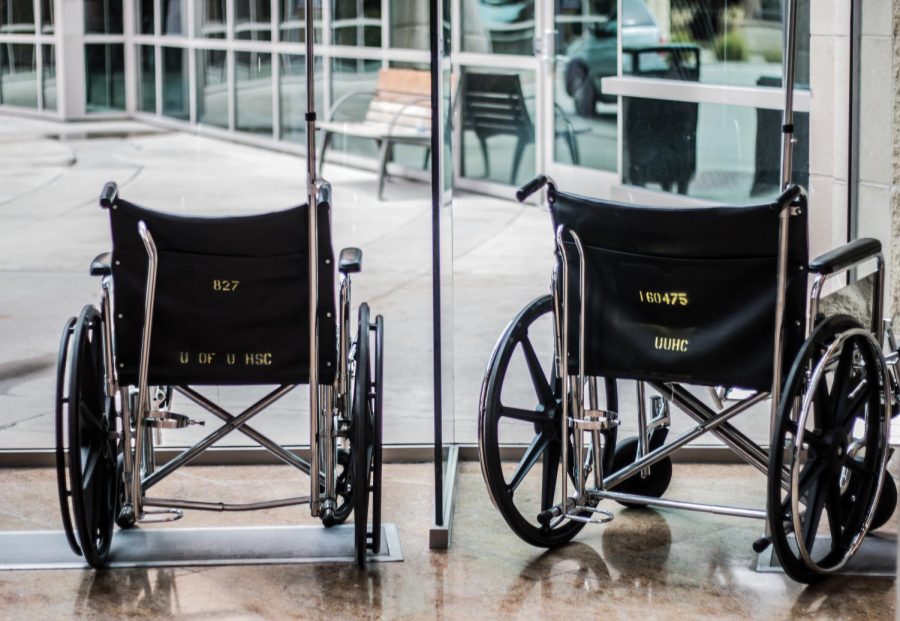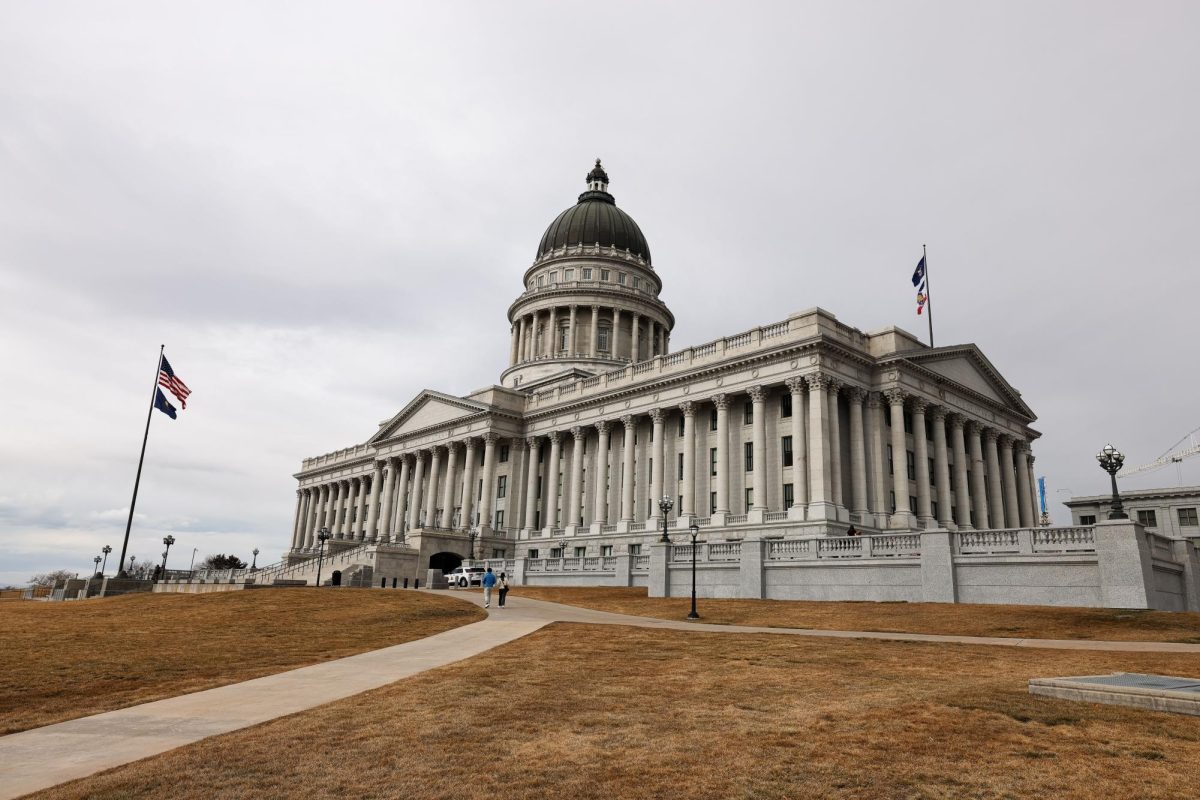Dalley: Utahns Deserve Humane End-of-Life Care
Opinion writer Nathan Dalley says that terminally ill patients should be able to decide when and how they die. (Photo by Cara MacDonald | Daily Utah Chronicle)
February 1, 2020
Death with dignity is a largely subjective concept that is personal to any individual who grapples with it. We must all use our best discretion to observe and respect the wishes of others as their lives comes to an end.
Death with dignity, also referred to as physician-assisted death, allows patients with incurable terminal illness to intentionally take drugs that will end their lives. Death with dignity bills increased after 29-year-old Brittany Maynard moved to Oregon (which has provided death with dignity since 1997) to obtain medication which would allow her to die in a way she believed to be most dignified. Maynard had chronic brain cancer and faced a slow and painful death. Maynard’s case led discussion about the meaning of a dignified death and the autonomy of individuals with a chronic illness.
Over the past few years, some of Utah’s state legislators have presented legislation that offers sensitive and ethical end-of-life care options. As the 2020 Utah state legislative session begins, state representative Jennifer Dailey-Provost has filed H.B. 93 – End of Life Prescription Provisions, a bill that would provide a chronically ill patient the right to seek a prescription allowing them to choose how they pass away. Instead of being forced to die a death that they consider undignified or undesired, patients would be able to exercise control over who is there, where they are and when they die.
In past years, this bill hasn’t made it through committee due to the belief that it needed further study. Some legislators were concerned about patients being coerced to choose this option or about misdiagnoses that would influence a patient who would otherwise choose not to end their life.
While these are valid concerns, death with dignity legislation should be passed by the legislature. This bill has been long debated and amended, and in its current form offers adequate support for those that are vulnerable to coercion into making the decisions. Though technology now exists to help some patients to live longer, they still deserve autonomy in regard to their own life. The goal of end-of-life care should not only be the lengthening of a person’s life, but also providing the correct quality of care. Chronically ill patients should have their wishes respected in their final days, and this bill would facilitate that.
Dailey-Provost’s bill allows a patient aged 18 or older who has a chronic illness to go through a process with several checks and balances to end their life on their terms. After successfully clearing this process, the patient could be prescribed medication that will end their life if they choose to administer the medication to themselves. This bill has gone through five years of thoughtful and careful consideration and has the support of 58% of Utahns. It actively protects the right of a terminally ill patient to choose the type of care they receive without coercion, one way or another.
Some claim that death with dignity or physician-assisted death is no different than suicide and that bills like Dailey-Provost’s allow physicians to murder their patients. This is simply not the case. While physicians are prescribing a lethal medication, they are not murdering their patient, nor are they assisting in a suicide. Physician-assisted death is carefully sought out, considered and tested before a patient is able to obtain it as a treatment option. It is not a violent death, and it allows the patient to say goodbye to their family and have them present when they pass away. Misconstruing the nature of this treatment option is harmful and restricts the autonomy of patients.
H.B. 93 is a well-thought-out bill with support among Utahns, and death with dignity is an option that everyone should have. If they choose this path without coercion, they should be able to choose to pursue treatment with the help of their medical team. Medical resources should not be used to force patients to die undignified and emotionally debilitating deaths. A patient who does not want to live longer should not be forced to. Patients like Maynard should not have to move in order to access humane health care. Such barriers only cause more pain.









Sue McKeown • Feb 20, 2020 at 10:18 am
What on earth does this bill really say? Terminallynill people can request lethal medication prescribed by a physician to end their lives? While I do not support any type of physician assisted-suicide or euthanasia whatsover, all other US laws require people requesting such medications to be terminally ill with a lifespan of less than 6 months.
After a quick span of the bill, there is no life span prognosis requirement. Many types of illnesses have a terminal prognosis unless another natural disease causes death first: ALS, Alzheimer’s disease and other forms of dementia, congestive heart failure, some forms of cancer where a patient’s life span can be extended for years with proper medical care. It’s not even a stretch to say that an insulin-dependent diabetic can cease taking insulin and or a patient on dialysis waiting for a kidney transplant can quit dialysis and become terminally ill in a matter of days.
This is a very dangerous and disengenous bill, even for people who support physician-assisted suicide (yes, call a spade a spade and don’t pussyfoot around and call it so-called “death with dignity”). Any person who does not have a terminal prognosis with a lifespan of six months of less or under normal standards of medical care and asks for lethal medication under the terms of this bill by definition has a mental health issue and needs mandatory mental health care. And not just a one-off 50-minute session.
Sam • Feb 4, 2020 at 7:04 am
Well said, and thank you for this article.
If I’m facing a terminal diagnosis, with little to no control over the outcome, I deserve to have a *little* control over how dignified my end becomes. Nobody has a right to tell me how to live, and nobody has the right to tell me how to die.
Bradley Williams • Feb 1, 2020 at 4:39 pm
This article perpetuates the euthanasia monopoly’s marketing lie of “self-administration “.
If the euthanasia monopoly would allow the means for an ordinary witness to the flaunted so called “self-administration” it would bring needed transparency to the covert Oregon type death laws. But they will not. Why? Because they have to protect their donors, predatory corporations and others.